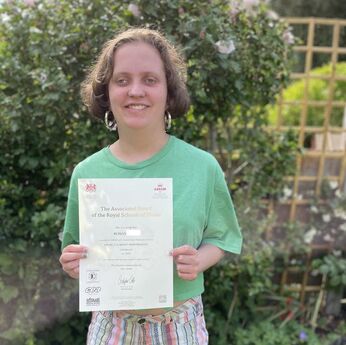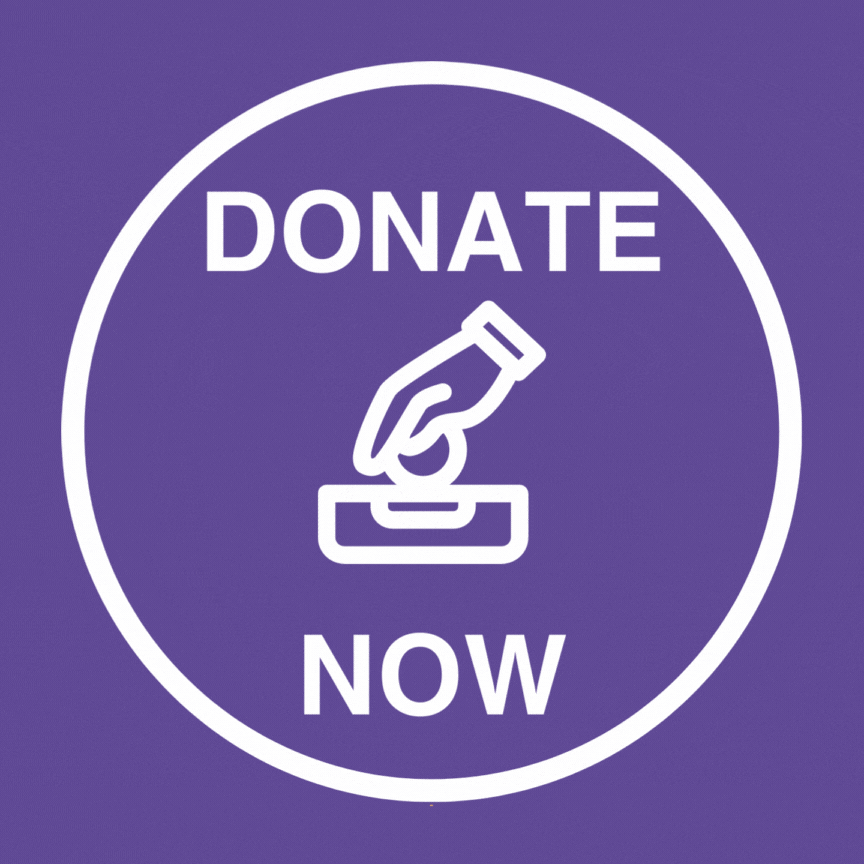Case study: OHMI’s first Music-Maker to learn the one-handed clarinet.The story of Rowan
|
Rowan, who is visually impaired, is the first OHMI Music-Maker to learn the one-handed clarinet.
Rowan has achieved her Grade 2 and is working towards her Grade 3. It is the social aspect of playing the clarinet that holds such appeal. Here, Rowan recounts what playing in an orchestra means to her and why she chooses to read Braille music.
Rowan has achieved her Grade 2 and is working towards her Grade 3. It is the social aspect of playing the clarinet that holds such appeal. Here, Rowan recounts what playing in an orchestra means to her and why she chooses to read Braille music.
“I started playing a standard clarinet when I was 12 but soon switched to a one-handed clarinet a few months later. It seemed the perfect option for me as it freed up my second hand to read Braille music.
It was through the OHMI Music-Makers project that I had the opportunity to meet other musicians at the charity’s play along days. OHMI also played an important role in introducing me to National Orchestra for All (NOFA). I joined at Easter 2023 and being part of it has enabled me to start playing more advanced pieces which are also helpful in preparing for my ABRSM exams.
I enjoy playing a range of pieces on clarinet, most recently ‘Music of the Night’ from Phantom of the Opera and Ghost Town.
I’m delighted to have achieved Grade 2 and will be sitting my Grade 3 in a few months’ time.
Why the clarinet?
The first instrument I ever played to any standard was the piano. As a static instrument, it offers a lot less freedom. Unlike the clarinet, you can’t take it anywhere or play it anywhere. That’s what I think makes the clarinet a very sociable instrument.
Why use Braille music?
I’m often asked why I choose Braille music to learn to play clarinet. The answer is simple – Braille music really does open doors!
Learning to play aurally has its place but audio skills alone make performing as part of an orchestra or ensemble really difficult. When you’re playing in a group as part of a much bigger piece, you really need Braille music to be able to follow.
Why is music-making so important for visually impaired (VI) people?
Music is a fantastic world which brings people together. Because VI impaired people are naturally so attuned to sound, I think they can access music in a way not always available to people with 20/20 vision.
That’s why it’s so important that alternative formats like Braille music exist. It has to be said, though, that it’s still a real faff in getting pieces in Braille format! Hopefully, with demand from more people like me, there will be more choice and more VI people can be encouraged to develop their love of playing music!”
It was through the OHMI Music-Makers project that I had the opportunity to meet other musicians at the charity’s play along days. OHMI also played an important role in introducing me to National Orchestra for All (NOFA). I joined at Easter 2023 and being part of it has enabled me to start playing more advanced pieces which are also helpful in preparing for my ABRSM exams.
I enjoy playing a range of pieces on clarinet, most recently ‘Music of the Night’ from Phantom of the Opera and Ghost Town.
I’m delighted to have achieved Grade 2 and will be sitting my Grade 3 in a few months’ time.
Why the clarinet?
The first instrument I ever played to any standard was the piano. As a static instrument, it offers a lot less freedom. Unlike the clarinet, you can’t take it anywhere or play it anywhere. That’s what I think makes the clarinet a very sociable instrument.
Why use Braille music?
I’m often asked why I choose Braille music to learn to play clarinet. The answer is simple – Braille music really does open doors!
Learning to play aurally has its place but audio skills alone make performing as part of an orchestra or ensemble really difficult. When you’re playing in a group as part of a much bigger piece, you really need Braille music to be able to follow.
Why is music-making so important for visually impaired (VI) people?
Music is a fantastic world which brings people together. Because VI impaired people are naturally so attuned to sound, I think they can access music in a way not always available to people with 20/20 vision.
That’s why it’s so important that alternative formats like Braille music exist. It has to be said, though, that it’s still a real faff in getting pieces in Braille format! Hopefully, with demand from more people like me, there will be more choice and more VI people can be encouraged to develop their love of playing music!”
"Hopefully, with demand from more people like me, there will be more choice and more VI people can be encouraged to develop their love of playing music!"
Donate to OHMIThere are so many disabled people who are desperate to play music with their peers. We can help to make that happen – but we can only do that with the wonderful support of our funders and donors.
As our instruments have to be hand-made by experts, they can only be produced in small numbers and are therefore expensive. Every little really does help.
|
Contact usIf you have a query or wish to contact us, please use the contact form available here.
You can also write to us: The OHMI Trust, 29 Woodbourne Road, Harborne, Birmingham B17 8BY |
Subscribe to our NewsletterIf you would like to join our mailing list and keep up to date with the latest news, please complete the form available here.
|
Privacy and Cookies Notice | Complaints Policy
All content © OHMI - Enabling Music-Making for Physically Disabled People
The OHMI Trust is a registered charity (Registered in England and Wales Charity No. 1143623, Scotland Charity No. SC052047).
Registered office: 29 Woodbourne Road, Harborne, Birmingham, B17 8BY
All content © OHMI - Enabling Music-Making for Physically Disabled People
The OHMI Trust is a registered charity (Registered in England and Wales Charity No. 1143623, Scotland Charity No. SC052047).
Registered office: 29 Woodbourne Road, Harborne, Birmingham, B17 8BY





